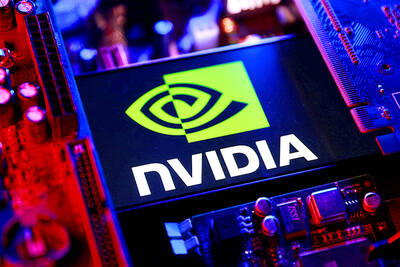The government’s proposed cuts to the renewable energy feed-in tariff (FIT) are unacceptable and harmful to the long-term viability of the industry, solar power operators said yesterday.
The Ministry of Economic Affairs has proposed slashing the FIT for ground-mounted solar power by 12.15 percent to NT$3.7228 per unit, in addition to a 11.6 percent reduction for floating solar power to NT$4.1665 per unit.
The proposed cuts far exceed the global average reduction of 4.25 percent earmarked for next year, and such a change would significantly affect local development of solar power, given the higher costs required to build projects in Taiwan, the Photovoltaic Generation System Association of the Republic of China, trade group SEMI’s photovoltaic committee and the Taiwan Photovoltaic Industry Association told a news conference in Taipei.
The local solar power industry is subject to higher land rent costs and other obligations, such as furnishing incentives to local governments and land owners, environmental conservation and precautions against typhoons, earthquakes and saltwater damage, the groups said, joining protests voiced by offshore wind farm developers on Friday last week.
These factors lead to a 30 percent reduction in solar power revenue, the groups said, adding that the industry would not be able to cope with such steep FIT cuts.
United Renewable Energy Co (聯合再生能源) chairman Sam Hong (洪傳獻) said that the government should raise the FIT for operators willing to build their own booster stations.
The FIT should be raised at least 6 percent to NT$3.9686 per unit, as booster stations are costly to build and are an important part of integrating renewable energy into the power grid, Hong said.
While the cost of solar panels has been decreasing by 10 percent annually, the panels only represent 25 percent of a solar power generation system, which translates to a reduced cost of 2.5 percent, Hong added.
“The government’s proposed FIT cuts simply do not suit the situation in Taiwan,” Hong said, adding that raising the FIT by 9 percent would be ideal for operators with larger commitments.
Local companies are not demanding greater profitability, as many are still operating in the red, he added.

POWERING UP: PSUs for AI servers made up about 50% of Delta’s total server PSU revenue during the first three quarters of last year, the company said Power supply and electronic components maker Delta Electronics Inc (台達電) reported record-high revenue of NT$161.61 billion (US$5.11 billion) for last quarter and said it remains positive about this quarter. Last quarter’s figure was up 7.6 percent from the previous quarter and 41.51 percent higher than a year earlier, and largely in line with Yuanta Securities Investment Consulting Co’s (元大投顧) forecast of NT$160 billion. Delta’s annual revenue last year rose 31.76 percent year-on-year to NT$554.89 billion, also a record high for the company. Its strong performance reflected continued demand for high-performance power solutions and advanced liquid-cooling products used in artificial intelligence (AI) data centers,

SIZE MATTERS: TSMC started phasing out 8-inch wafer production last year, while Samsung is more aggressively retiring 8-inch capacity, TrendForce said Chipmakers are expected to raise prices of 8-inch wafers by up to 20 percent this year on concern over supply constraints as major contract chipmakers Taiwan Semiconductor Manufacturing Co (TSMC, 台積電) and Samsung Electronics Co gradually retire less advanced wafer capacity, TrendForce Corp (集邦科技) said yesterday. It is the first significant across-the-board price hike since a global semiconductor correction in 2023, the Taipei-based market researcher said in a report. Global 8-inch wafer capacity slid 0.3 percent year-on-year last year, although 8-inch wafer prices still hovered at relatively stable levels throughout the year, TrendForce said. The downward trend is expected to continue this year,

‘BASICALLY A BAN’: Sources said the wording governing H200 imports from officials was severe, but added that the regulations might change if the situation evolves Chinese customs authorities told customs agents this week that Nvidia Corp’s H200 artificial intelligence (AI) chips are not permitted to enter China, three people briefed on the matter said. Chinese government officials also summoned domestic technology companies to meetings on Tuesday, at which they were explicitly instructed not to purchase the chips unless necessary, two of the people and a third source said. “The wording from the officials is so severe that it is basically a ban for now, though this might change in the future should things evolve,” one of the people said. The H200, Nvidia’s second-most powerful AI chip, is one

A proposed billionaires’ tax in California has ignited a political uproar in Silicon Valley, with tech titans threatening to leave the state while California Governor Gavin Newsom of the Democratic Party maneuvers to defeat a levy that he fears would lead to an exodus of wealth. A technology mecca, California has more billionaires than any other US state — a few hundred, by some estimates. About half its personal income tax revenue, a financial backbone in the nearly US$350 billion budget, comes from the top 1 percent of earners. A large healthcare union is attempting to place a proposal before